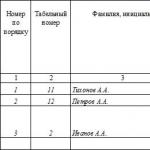He was a follower of the German idealist philosopher Schelling, who understood nature as a natural unity of opposites. This concept has found many fans among young romantic poets not only in Europe, but also in our country. To what extent the poet’s worldview was reflected in his immortal creations will help to evaluate the analysis of Tyutchev’s lyrical poem “Leaves.”
Paramount Poet
Tyutchev went to Germany as a diplomat in 1821, where he met his idols - Schelling and Heine, married Eleanor Peterson and continued to write poetry, which he had been passionate about since adolescence. From abroad, the poet sent lyrical works to Russia at the insistence of Alexander Sergeevich Pushkin and gained some fame here. Among the creations of this period was Tyutchev’s poem “Leaves”. After the death of Pushkin, Fyodor Ivanovich’s lyrics were no longer published in Russia. N. Nekrasov, in his article “Russian Minor Poets,” decisively stated that he classifies the literary talent as one of the primary poetic talents, which by chance turned out to be among the little-known to the Russian reader, and put Tyutchev on a par with the famous Russian poets Pushkin and Lermontov.
Let's begin to study the lyrical work
Tyutchev’s “Leaves” appears to us as follows: we determine the theme and idea of the work. We evaluate the composition. We also consider the means of figurative expression and summarize.

Analysis of Tyutchev’s poem “Leaves”: theme and composition
Ivan Sergeevich Turgenev called Fyodor Tyutchev a poet of thought fused with feeling. He emphasized another feature of the master of words’s poetry: the psychological accuracy of his lyrics and passion as its main motive. In the poem “Leaves,” Tyutchev combines the analysis of mental movements with a picture of fading nature. The composition is based on parallelism: the external world (landscape) and the internal sphere of human aspirations are compared. Obviously, the theme of the poem is the contrast of violent and vivid feelings with cold calm. How is this done?

In the first stanza of the poem, we see a picture of motionless evergreen coniferous trees, as if frozen in eternal peace. In the second stanza, in contrast to the winter stillness, a sketch of a bright short summer appears. The poet uses the technique of personification: he speaks from the perspective of leaves on deciduous trees. The third stanza represents the autumn time of slow cooling and fading of nature. The fourth stanza is imbued with a passionate plea: the leaves ask the wind to pluck and carry them away in order to avoid withering and death.
The idea of a lyric work
The poet turns the autumn landscape, when one can observe the leaves swirling in the wind, into an emotional monologue, permeated with the philosophical idea that slow invisible decay, destruction, death without a brave and daring takeoff is unacceptable, terrible, and deeply tragic. Let's see with what help the poet does this.

Artistic techniques
Tyutchev expressively uses antithesis. Pine and spruce trees appear in a state of winter hibernation even in summer, since they are not subject to any changes. Their “skinny greenery” (let’s pay attention to the epithet!) is contrasted with the lush foliage of summer, shining in the sun’s rays and dew. The feeling of the soulless static nature of coniferous trees is enhanced by the emotional comparison of their needles with those of hedgehogs. Greenery, which “never turns yellow, but is never fresh,” is somewhat akin to a lifeless mummy. In the author’s view, coniferous specimens of flora do not even grow, but “stick out,” as if they were not nourished by the juices of the earth through the roots, but were mechanically stuck into the ground like needles. Thus the poet deprives them of even a hint of life and movement.

On the contrary, they are presented in continuous dynamics, play of light and shadow. The poet uses personification and metaphors: leaves are a “tribe” that “stays” on the branches “in beauty”, “plays with the rays”, “bathes in dew”. When describing coniferous trees, the word “forever” is used; it is opposed to the phrase “short time,” which refers to deciduous trees. In contrast to the reduced vocabulary, which is represented by protruding spruce and pine trees, the author appeals to a high style: “marshmallows”, “red summer”, “light tribe”, speaking of tremulous foliage.
Morphological and phonetic analysis of Tyutchev’s poem “Leaves”
The first stanza, showing an unsightly picture of pines and firs frozen in the cold, contains only three verbs used in the present tense. This emphasizes static. The sound design of the first stanza is distinguished by the obsessive presence of whistling and hissing consonants. In the second stanza, which depicts leaves in summer, there are twice as many verbs - there are six of them, and they are used in the present and past tense, which enhances the feeling of continuous movement, a short but fulfilling life. In contrast to the alliteration of hissing and whistling in the previous stanza, sonorant sounds predominate here: l-m-r. This conveys a state of harmony characteristic of an inspired and full-blooded life.

The third stanza offers verbs in the past tense and indefinite form. We are talking about approaching death, withering. The mood of anxiety and hopelessness is created by an abundance of voiceless consonant phonemes. The last stanza is filled with a desperate plea, it sounds like a spell, like the groan of leaves calling to the wind. It contains a lot of exclamations and future tense verbs. In the sound recording, drawn-out vowels are clearly audible - o-u-e, which in conjunction with the consonants “s” and “t” convey a gusty whistle of the wind.
The poet's aesthetic credo
An analysis of Tyutchev’s poem “Leaves” helped to understand that this is not only an elegant example of landscape lyricism and a brilliant attempt to transform a picture of nature into emotional experiences. Before us is a capacious philosophical formula, according to which existence and eternity only make sense when every moment is filled with fleeting, burning and quivering beauty.
Presented here:
- full text of F. I. Tyutchev’s poem “Leaves”,
- school analysis of Tyutchev F.I.'s poem "Leaves".
Tyutchev F.I. "Leaves"
Let the pines and spruce
They hang around all winter,
In snow and blizzards
They are wrapped up and sleeping.
Their skinny greens,
Like hedgehog needles
At least it never turns yellow,
But it’s never fresh.
We are an easy tribe,
We bloom and shine
And for a short time
We are visiting on the branches.
All red summer
We were in glory
Played with rays
Bathed in dew!..
But the birds sang,
The flowers have faded
The rays have turned pale
The marshmallows are gone.
So what do we get for free?
Hanging and turning yellow?
Isn't it better to follow them?
And we can fly away!
Oh wild winds,
Hurry, hurry!
Rip us down quickly
From the annoying branches!
Rip it off, run away,
We don't want to wait
Fly, fly!
We are flying with you!
School analysis of F. I. Tyutchev’s poem “Leaves”
The poem "Leaves" by the Russian poet Fyodor Ivanovich Tyutchev was written in one thousand eight hundred and thirty. It dates back to the early period of the poet’s work. The contradictions that reign in the soul of a young man are embodied in a literary work in images of nature.
The poem "Leaves" is dynamic and fast. It is dominated by verbs, images will replace each other, revealing the main idea of the work. The vernacular “stick out” conveys the poet’s mood. Fyodor Ivanovich Tyutchev depicts the contradictions that took possession of his soul. He observes different views on life, and asks a rhetorical question: “So why should we hang and turn yellow for nothing?” This question is followed by a vigorous answer.
Oh wild winds,
Hurry, hurry!
Rip us down quickly
From the annoying branches!
The poem uses artistic means.
Personifications: pines and spruce trees are sleeping, skinny greenery, “light tribe”, “we bloom and shine”, “we are visiting on the branches”, “we were in beauty”, “playing with the rays”, annoying branches, “we don’t want to wait”.
Comparisons: like hedgehog needles.
Antithesis: leaves are contrasted with pine and spruce needles.
Rhetorical question: “So why should we hang and turn yellow for nothing?”
The poem reveals the philosophical theme of choice. The poet is concerned with the question of choosing a life path. The poem forms two opposing points of view. The technique of allegory allows the poet and reader to resolve this issue in the images of beautiful, living, playful leaves and sleeping, prickly, not fresh needles on the branches of pine and spruce trees.
The work of Fyodor Ivanovich Tyutchev is imbued with philosophical motives. In the poems of the Russian poet, questions arise about the life of man and his soul.
Tyutchev Fedor Ivanovich is a brilliant poet of Russia. He gained his fame after his death, although he began to write in an early period. His first poems include the wonderful work “Leaves.” It was written in 1830 by seventeen-year-old Fyodor Tyutchev. The first lines of the work resemble landscape lyrics. In it, the winter forest is covered with caps of snow. Although the needles of spruce and pine trees have not changed their color, they look gloomy in comparison with the white and clean snow. But leaves from birches and aspens fall dead to the ground.
In the second part, the author conducts a comparative analysis between nature and man. Every person is like leaves. Everyone rejoices in the sun and warmth and is sad in the cold and frost, as if they were dying off like those fallen leaves. Also, in comparison with the fact that the birds have already finished singing and the flowers have faded, the author shows that life is fleeting, youth passes, and maturity is not so colorful. Young Tyutchev does not believe in the wisdom and consciousness of adult life; he thinks that only disappointment awaits him. This can be seen from the lines of his poem. The only way out for him seems to be the wind, which tears off the yellowed leaves, thereby he wants to say that it is better for old people to go to eternity than to bother others with their whims and moralizing.
The poem is written in two-foot amphibrachium and a three-syllable foot with stress on the second syllable. The work consists of four eight-line stanzas. The contrasts of sadness and joy, death and life are clearly visible. With his poem, the author wanted to remind that everything in the world is fleeting and you need to color and dilute your life with joy. Enjoy every day you live and bring peace and goodness into it. Because at any moment you can turn into yellow leaves and silently fall to the cold ground.
Let the pines and spruce
They hang around all winter,
In snow and blizzards
Wrapping themselves up, they sleep, -
Their skinny greens,
Like hedgehog needles
At least it never turns yellow,
But it’s never fresh.
We are an easy tribe,
We bloom and shine
And for a short time
We are visiting on the branches.
All red summer
We were in glory -
Played with rays
Bathed in dew!..
But the birds sang,
The flowers have faded
The rays have turned pale
The marshmallows are gone.
So what do we get for free?
Hanging and turning yellow?
Isn't it better to follow them?
And we can fly away!
Oh wild winds,
Hurry, hurry!
Rip us down quickly
From the annoying branches!
Rip it off, run away,
We don't want to wait
Fly, fly!
We are flying with you!..
October 1830
Analysis of F. I. Tyutchev's poem "Leaves"
F.I. Tyutchev is an unsurpassed master of landscape poetry. His lines about nature rarely tell only about weather phenomena. There is always a philosophical subtext. The poet's life was filled with love, vivid experiences, but not always positive.
Fyodor Ivanovich is a man with a difficult fate. He spent half his life away from his homeland, which he loved very much. And I missed the Russian expanses. Therefore, in every landscape poem there is an undisguised melancholy. But the most poignant lines were born in autumn.
Tyutchev's early poetry was archaic, reminiscent of the poems of the last century. The writing style was similar to the sublime lyrics of the idols of youth: Zhukovsky, Dmitriev, Derzhavin.
The poem “Leaves” was written in 1830, when Fyodor Ivanovich’s own, unique style began to appear in the lyrics. This was a relatively calm period of his life. Munich gave the young man the whole range of love experiences. And in 1830, the marriage with Eleanor Petterson was finally formalized. Anxieties and doubts are left behind. And the misfortune that will destroy family happiness is not even on the horizon.
The poem is based on personifications. The structure of the work is peculiar. In essence, this is a monologue, a song of autumn leaves that strive to fly. The entire story is told on their behalf. They take the place of the lyrical hero and narrator. The author and the reader become outside observers of what is happening.
Leaves think, feel, live. They express the author’s thoughts about his own life. This is a striking example of artistic parallelism in Russian poetry. When the lyrical hero is equated with the forces of nature. And his moods are expressed by weather phenomena.
The poem belongs to the romantic style and consists of four stanzas, each with eight lines. The first quatrain describes a winter forest, a kind of work for the future. There is no pretty description of snow-capped trees here. The author talks about the eternal greenery of pines and spruces. They do not lose their color all year round, but the needles are not fresh. It is contrasted with a description of bright autumn leaves that are destined to fly around. The leaves are happy with their fate.
The author's idea is clear that it is better to live briefly, but brightly, and not bow to anyone. Instead of groveling all your life, drowning in dullness, boredom, ordinariness. The boring monotony of the existence of “skinny greens” is unattractive. The needles of coniferous trees are a symbol of people who do not know how to live brightly, freely, and openly express their opinions. And again there is a parallel between natural phenomena and human life.
The poem is built on contrast. The “light tribe” of leaves does not live long. Only one summer “stays on the branches.” A reminder that “we are all guests in this world.” But he spends the allotted time cheerfully, carefree, brightly, richly. They are born in early spring. They bask in the sun in the summer, fed by warm rain, and then disappear from the branches in early autumn.
They will not see the dirt of late autumn, the first November frosts and severe winter. An ideal life, according to the author. Tyutchev at that time had already reached adulthood and started a family. He was caught up in everyday life. There is a longing for carefree youth, thoughts of inevitable old age.
In the last stanza the pace of the poem accelerates. The illusion of flight is created. The leaves are in a hurry, urging the wind to take them with it. Alliteration plays an important role in the perception of a poem. The same consonants are repeated, creating a special sound outline, giving expressiveness to the text.
Topic: “Philosophical and symbolic meaning of the landscape in the poem “Leaves” by F.I. Tyutchev.”
Fyodor Ivanovich Tyutchev was a descendant of an old noble family. F.I. Tyutchev spent his childhood years in the village among the magnificent landscapes of Russian nature, perhaps that is why he was able to so sensitively, tenderly and realistically describe natural changes in his poems. A big role was played by his teacher, the young poet and translator S. Raich, he was involved in the home education of F.I. Tyutchev, he encouraged the first poems and inspired the future poet. F.I. Tyutchev’s first poems were published in S. Raich’s magazine “Galatea”. Even then, F.I. Tyutchev made an impression in literary circles and showed the maturity of his talent. F.I. Tyutchev lived in Munich for twenty-two years, here he got married, and here he met the philosopher Schelling. Acquaintance with the famous philosopher played a big role in the poet’s life and had a great influence on his work. Schelling understood nature as a natural unity of opposites. This concept is also reflected in the work of F.I. Tyutchev; it will help to analyze the lyric poem “Leaves”.
In 1830, the year the poem “Leaves” was written, Tyutchev was 27 years old. The poem belongs to the landscape-philosophical lyrics. The philosophical basis of the poet's worldview is a special attitude towards nature. A passionate love of life and constant internal anxiety forced F.I. Tyutchev to perceive reality tragically. The poet thinks about the short duration of human existence, and this makes him peer into nature, in which he sees a reality that has the ability to be eternally renewed.
F.I. Tyutchev strives to capture the soul of nature, understand its language, and reveal secret thoughts. Nature is beautiful, vast and incomprehensible. Man is small, weak and mortal. But human strength lies in continuous, inexhaustible attempts at knowledge, including through art. He learns from nature to see the beauty, the uniqueness of moments, and tries to comprehend the meaning of existence through the sensations of nature. Tyutchevsky's man at times experiences a feeling of absolute unity with the natural world. In the poem “Leaves,” the poet compares the life of leaves with human life. He shows it at the beginning of life - these are small, timidly emerging green sticky leaves. In the wild bloom of youth, strong leaves full of life resist winds, sun and other adversities. But at the same time, they experience all the joys of life: they bloom and shine, play with the rays, bathe in dew - enjoying everything that life can give. The beauty of fading in old age - before drying up and disappearing, they amaze us with a riot of colors and richness of colors. The leaves don't want to just hang and turn yellow, they want to do something amazing as a goodbye. Yes, they will fade, wither, die, but they will leave, delighting those around them, leaving a trace of themselves in the memory. F.I. Tyutchev conveys the idea that death without a fight is terrible and tragic. Unlike human life, nature simply falls asleep, and in the spring the life of the leaves will appear with renewed vigor. This feature attracts F.I. Tyutchev, makes him think about the meaning of life, hence the comparison of human life with the life of nature. The poet believes that only nature has true existence: it is alive in itself and animated.
In the poem, leaves are contrasted with the needles of pine and spruce trees. Pine and spruce trees appear in a state of winter hibernation even in summer, since they are not subject to any changes. Their “skinny greenery” is contrasted with the lush foliage of summer, shining in the sun and dew. The feeling of the soulless static nature of coniferous trees is enhanced by the emotional comparison of their needles with those of hedgehogs. Greens, which “never turn yellow, but are never fresh,” look like a mummy. Needles are eternal, but their life is not interesting, not filled with any events, they cannot commit a crazy act, like leaves. In the author’s view, the needles do not grow, but “stick out,” as if they were not nourished by the juices of the earth through the roots, but someone mechanically stuck them, like needles, into the ground. The poet deprives them of even a hint of life and movement. Likewise, some people cannot commit a single incredible act in their entire lives - they are dead to life. F.I. Tyutchev shows the natural unity of opposites not only in nature, but he says that in human life there is an opposite. There are people, like pine needles, for whom eternal peace, silence, staticity are the meaning of existence. People who look like leaves never stand still, they cannot live without ups and downs, for them movement is life. The poet believes that a quiet, calm life without trying to change anything is meaningless. Only one who strives to achieve something, even if he makes mistakes, is capable of risky actions, lives a full life, can experience life and be satisfied with it, can believe that he did not live in vain.
Despite his young years (and then he was 27), F.I. Tyutchev imagines himself to be an old man inside, therefore he writes that he and his peers are an “easy tribe” whose life is short-lived. According to the young Tyutchev, old age and weakness cannot be overcome, but life in old age loses not only its beauty, but also its meaning. F.I. Tyutchev sees only mourning and disappointment in the ending of any life and in every possible way resists experiencing it himself. He says: “Get off, run away, we don’t want to wait, fly, fly! We’re flying with you!” - the attitude of the young Tyutchev towards old age. When composing this work, F.I. Tyutchev was sure that death would overtake him very young, and he would not know all the “torments” and “sufferings” of old age. He did not abandon the hope of sudden death, so as not to regret such a short life.
Thus, having analyzed F.I. Tyutchev’s poem “Leaves,” we come to the conclusion that this is not only a wonderful work of art, but also a brilliant attempt to transform a picture of nature into emotional experiences. The main idea is the philosophical understanding that even eternal existence only makes sense when every moment is filled with fleeting, bright, unusual, daring beauty.




